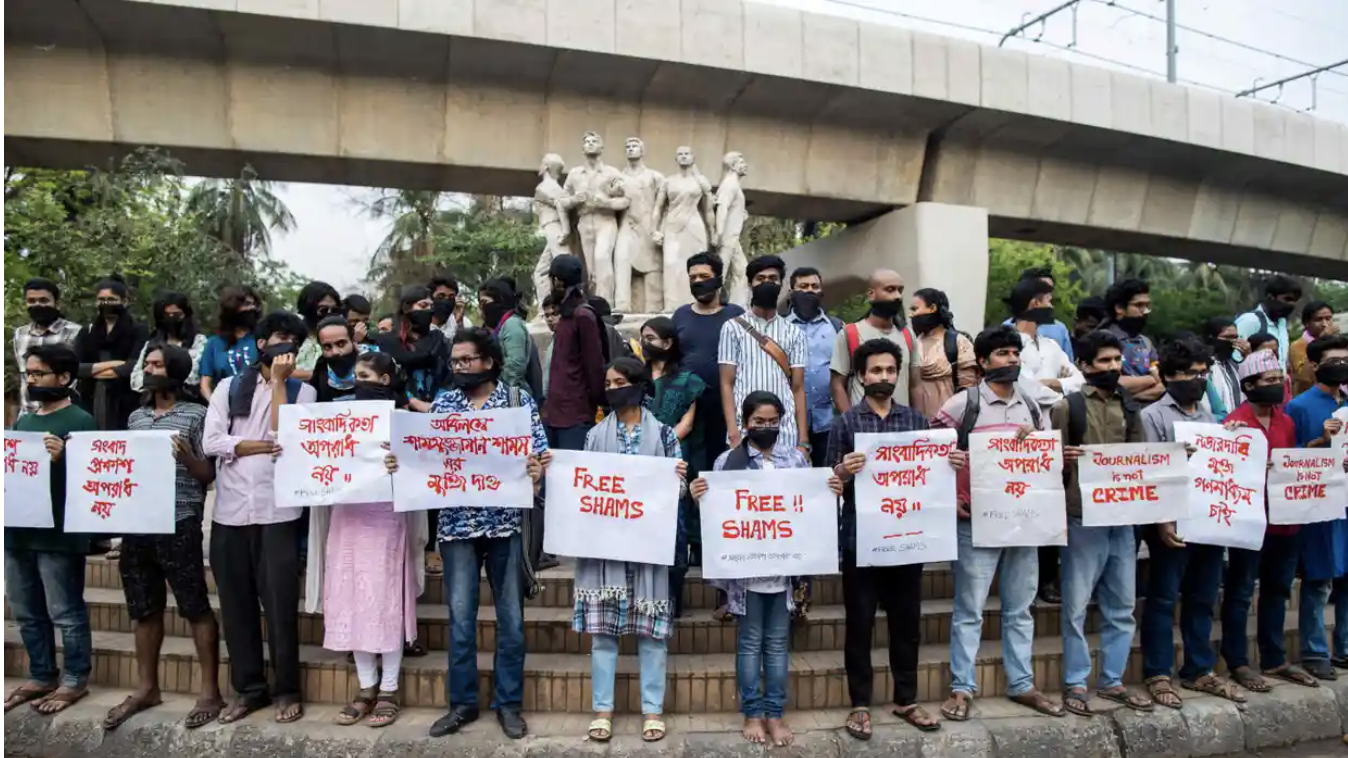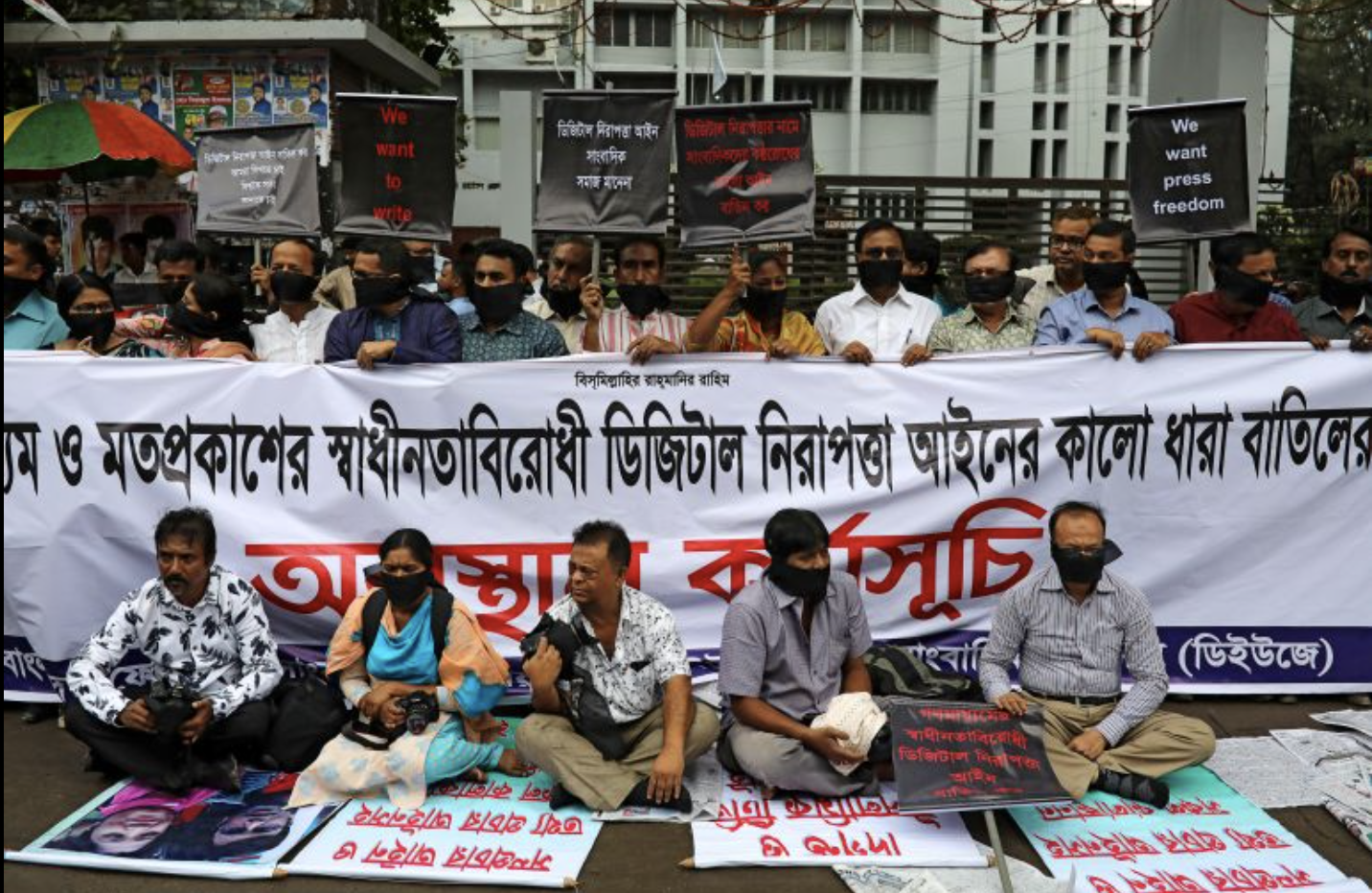Disputes Over Digital Law Send Bangladeshi Journalist To Jail
University students in Dhaka hold placards demanding the release of journalist Shamsuzzaman Shams. Sri Lanka, March 30, 2023. Source: The Guardian, Agence France-Presse
Bangladeshi journalist Shamsuzzaman Shams, a correspondent for Prothom Alo, a Bangladeshi news platform, was picked up on March 29 from his residence by a group of individuals in civil clothes who identified themselves as the Criminal Investigations Department.
The government intervened due to the fact that Shams wrote an article on March 26 (Bangladesh's Independence Day), which covered the rising cost of living in the nation. If convicted, he would face up to seven years in prison. While in police custody, it was reported that he was being charged under Bangladesh's draconian Digital Security Act.
On April 3, Shams was granted bail, however, such censorship is a blatant violation of the right to freedom of expression. The article that Shams published quoted a local laborer who emphasized that the country’s independence did not mean much to him because of the daily adversities he was facing in an attempt to survive day by day. One of the issues mentioned in the article were the high rates of inflation and lack of food that people in the nation are suffering from. Yet, the police claim that Shams was spreading fake news under the Bangladeshi Digital Security act.
The article written by Shams was widely spread on social media, which brought it to the attention of Prime Minister Sheikh Hasina. Although authorities claim that the article was ill-motivated, fabricated, and false, no official statements were immediately released to clarify the extent of its inaccuracy.
The Human Rights Watch and Amnesty International condemn the actions of the Bangladesh government and claim that their law strikes a blow to freedom of speech. The contents of the article focused on the rising cost of living given that many locals are unable to afford basic commodities such as rice, meat, and fish.
Journalists in Dhaka protest against the Digital Security Act on October 11, 2018 [Source: Mohammad Ponir Hossain/Reuters]. Al Jazeera
The UN Human Rights Committee has stated that the right to freedom of expression protects the expression of every idea and opinion, including political discourse, commentary on public affairs, and discussion of human rights under the International Covenant on Civil and Political Rights. However, according to the Center for Governance Studies, under the DSA, a total of 138 cases were being filed between January 2019 and August 2022. These numbers highlight the fact that a total of 290 people were accused of expressing their opinions through their work, and 84 people were arrested.
Since Bangladesh introduced this law in 2018, freedom of speech has somewhat been curtailed as authorities have used to suppress online dissent. Yet, such censorship could cause serious issues for educational development, given that citizens must have the opportunity to have access to transparent news sources in the countries that they reside in order to gain unbiased and trustworthy information.
Amnesty International claims that the Digital Security Act law in Bangladesh consists of overbroad and vague provisions that target people for exercising their freedom of speech and expressing dissent. In February 2021, a Bangladeshi writer named Mushtaq Ahmed died in prison after being incarcerated for 10 months in pretrial detention for criticizing the Bangladeshi government’s response to the Covid-19 pandemic.
Unlike this case, luckily, Shams was granted bail, but government officials must recognize the importance of protecting an individual’s freedom of expression.


